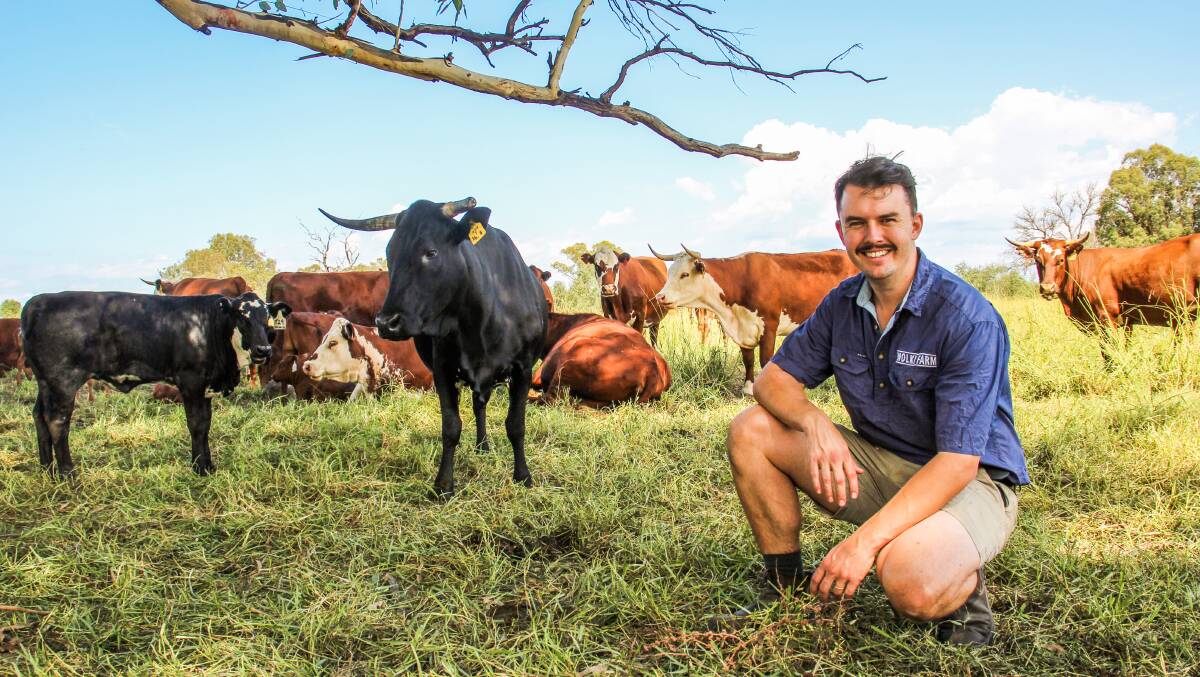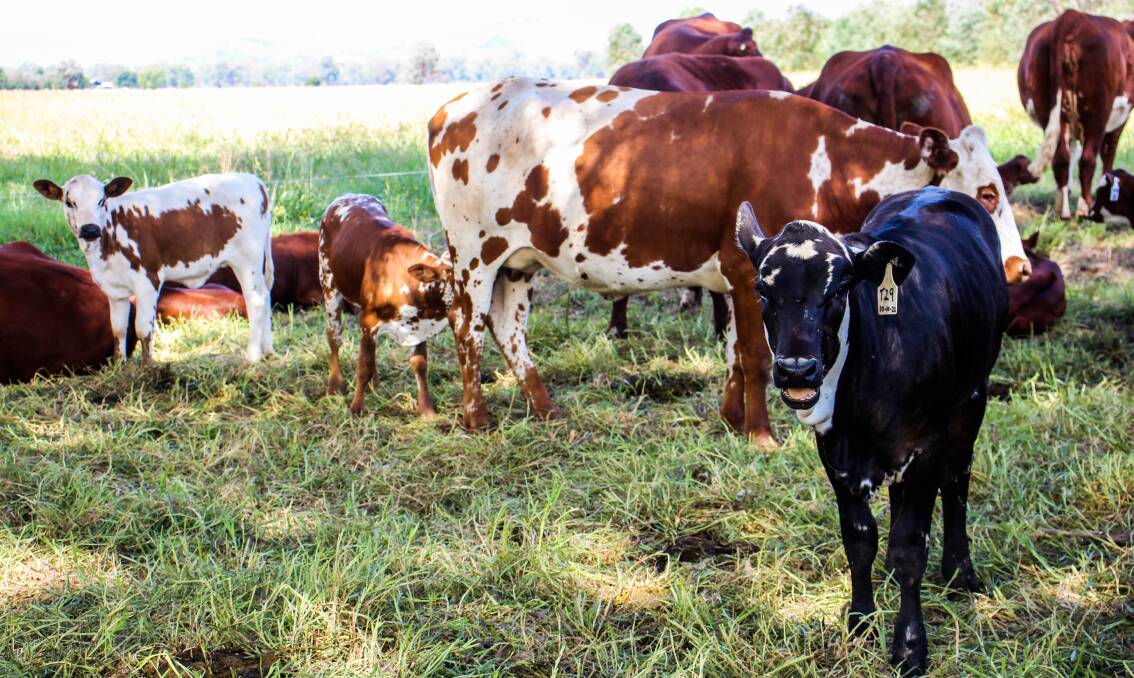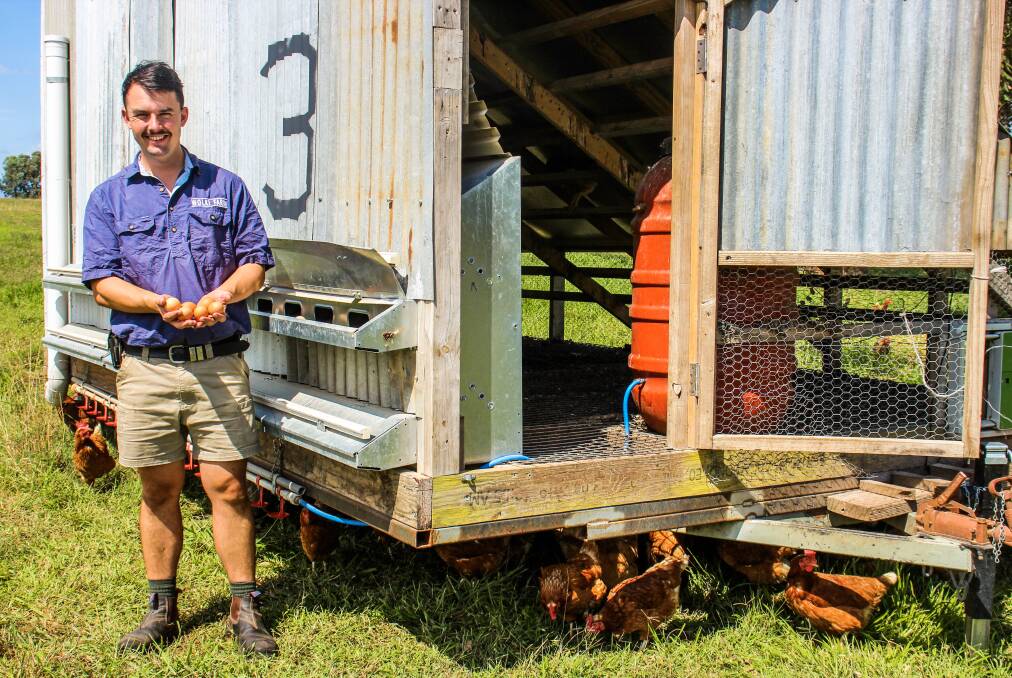
From small things, big things grow, and that's how Jake Wolki's paddock to plate business got started.
Subscribe now for unlimited access to all our agricultural news
across the nation
or signup to continue reading
Mr Wolki is not your average farmer, having come from a local business background in the Albury area running the family bicycle shop and a cafe.
All up, he only has about 120 hectares, all of which was leased, but he's grown his food sales at the rate of knots.
This is partly through a self-serve retail butcher/produce store, a concept designed to reduce staff and overhead costs while ensuring his produce was accessible to the public.
However, his journey began with his own search for foods grown using better than the typical animal welfare standards.
He realised he would have to grow his own and he started small - with chickens.
"About four years ago I bought a caravan off Facebook for a couple of hundred bucks and I put my dad's 40 hens in it," he said.
"I started moving them around the pastures and it was an absolute dogfight because we had no infrastructure. I was hauling water.
That was 2019 and it was dry as anything.
"The trailer wasn't set up properly. I had them laying in milk crates and it was a solid floor so the manure wasn't falling through so I was mucking it out, but I was just so excited to get started with something and I couldn't wait."
Mr Wolki then purchased 20 Hereford yearlings.
"I started moving them around but we had no infrastructure for that either and that was a nightmare as well, but I still loved it," he said.

The venture now also includes pigs, sheep and broilers, as well as beehives, a market garden and fruit trees.
His beef herd totals about 50 cows, a mixed bag of Shorthorns and Jerseys, and he has introduced Nguni and has first-cross Nguni calves on the ground now.
"The reason we went with the Nguni is just because of how hardy they are," he said.
"I like their vigour, they're small framed and I think a small cow makes more sense for what we do."
Half the herd, meanwhile, was retired dairy cows which he bought for a fixed price from a local dairy.
He buys the cows in groups of 10 or 20, runs them with the bull for 10 weeks and then pregnancy tests them.
Anything that was empty was finished and processed.
"That's our favourite meat off the farm - the Jersey beef," Mr Wolki said.
However, when it came to the end product, Mr Wolki wasn't convinced the breed had a massive part to play in meat quality.
"I'm more convinced it's about the quality of the pastures they're on, the way they're handled on farm in terms of low stress stock handling and then the way the butchers process it," he said.
It was this thinking behind his holistic management approach to his grazing and the chickens which followed the cows.

The 1000 laying hens have portable shelters, which Mr Wolki and his team built on recycled caravan chassis.
He buys caravans on Facebook or Gumtree, cuts them down and builds to his own design using salvaged fallen timber.
The farm's meat and produce is retailed through his family's cafe and their self-service retail butchery.
The butchery, which they opened in 2021, was purchased to enable them to process their own meat after being bumped around by butchers too busy with their own businesses.
"I knew it would never justify a wage of someone sitting there and I thought the only way it was going to be viable was if it was some sort of walk-in vending machine or self-checkout system," he said.
"Those pieces of hardware are enormously expensive and I stumbled across some apps and clicked a few systems together and now we've got this 24/7 staffless self-access, self-service butchery that's been running since April 2021 and it's been doing really well."
Through the cafe Mr Wolki said the on-farm values were continued, including the use of beef tallow and pork lard in the deep fryer and grill instead of seed oils.
"The vegans don't like it because the chips are deep fried in animal fat, but you can't be everything for everyone."


